Maharishi Dayanand Saraswati Jayanti commemorates the birth anniversary of one of India’s most influential spiritual leaders, Maharishi Dayanand Saraswati.
Born on this auspicious day in 1824 in the serene village of Tankara, Gujarat, Maharishi Dayanand Saraswati’s life journey is a testament to the power of vision, dedication, and spiritual enlightenment.
From a young age, Maharishi Dayanand Saraswati displayed a profound intellect and a deep curiosity about the mysteries of existence.
His quest for knowledge led him on a transformative journey, shaping the course of his life and leaving an indelible mark on Indian society.
In this comprehensive exploration of Maharishi Dayanand Saraswati’s life and teachings, we delve into the early years of his upbringing, the founding of the Arya Samaj movement, his philosophical insights, and his enduring legacy.
Through his teachings and actions, Maharishi Dayanand Saraswati inspired generations of individuals to embrace a path of righteousness, social reform, and spiritual enlightenment.
Join us as we embark on a journey through the life and legacy of Maharishi Dayanand Saraswati, exploring the profound impact of his teachings on Indian society and beyond.
Early Life of Maharishi Dayanand Saraswati

Maharishi Dayanand Saraswati, originally named Mul Shankar Tiwari, was born on Maharishi Dayanand Saraswati Jayanti in the year 1824, in the quaint village of Tankara, located in the picturesque landscapes of Gujarat, India.
His early life was marked by simplicity, yet it foreshadowed the remarkable journey ahead.
From his formative years, Maharishi Dayanand displayed a precocious intellect and an insatiable thirst for knowledge.
Growing up in a devout Hindu family, he imbibed the rich spiritual traditions and cultural values that permeated his surroundings.
His parents, Karshanji Lalji Tiwari and Yashodabai instilled in him a deep reverence for Hindu scriptures and a strong sense of moral integrity.
Despite facing hardships in his youth, including the loss of his father at a young age, Maharishi Dayanand remained steadfast in his pursuit of education and spiritual enlightenment.
He received his early education at the local village school, where his exceptional intellect soon became evident to his teachers and peers.
Even in his formative years, Maharishi Dayanand demonstrated a keen interest in religious matters and philosophical inquiry.
He immersed himself in studying ancient scriptures and philosophical texts, seeking answers to life’s profound questions and grappling with the complexities of existence.
The tranquil surroundings of Tankara provided the perfect backdrop for Maharishi Dayanand’s introspective pursuits, nurturing his spiritual growth and intellectual development.
During this time, he began to question the prevailing religious practices and societal norms, laying the groundwork for his future endeavors as a reformer and visionary leader.
Birthplace of Maharishi Dayanand Saraswati
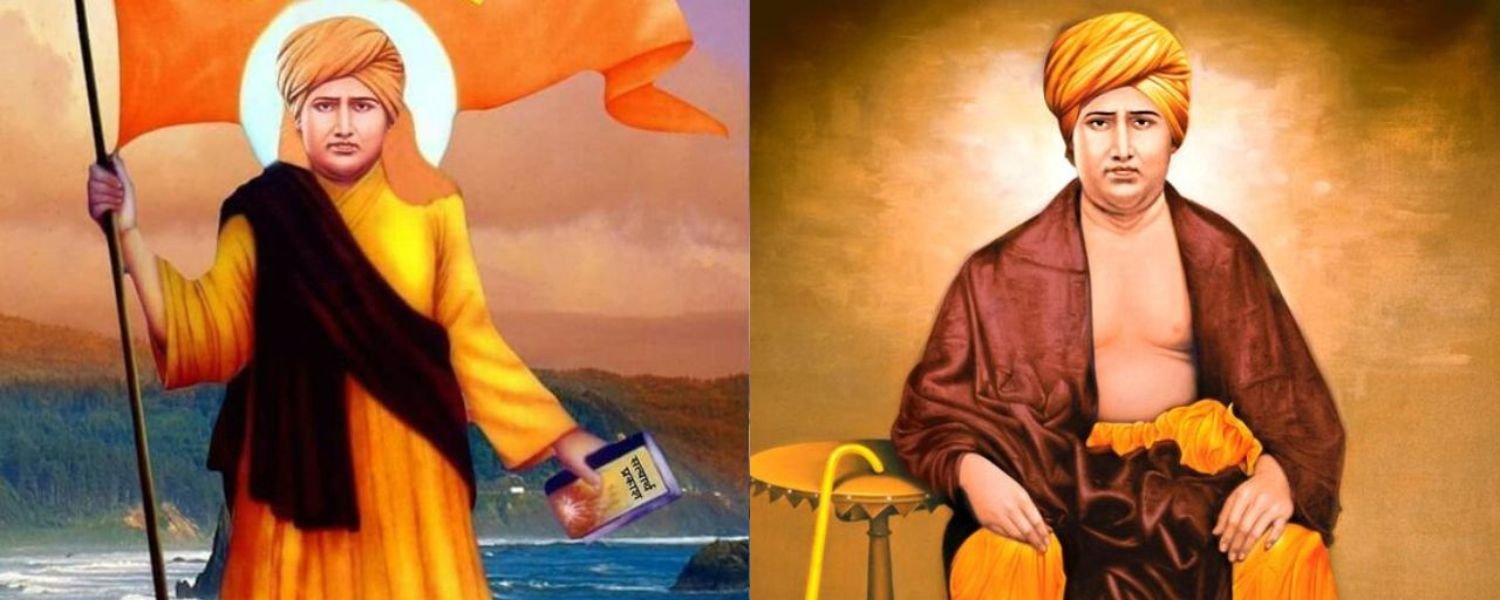
The serene village of Tankara in the Saurashtra region of Gujarat, India, holds the honor of being the birthplace of Maharishi Dayanand Saraswati, the illustrious spiritual leader.
Born on Maharishi Dayanand Saraswati Jayanti in 1824, this picturesque village provided the backdrop for the early years of Maharishi Dayanand’s life, shaping his character and laying the foundation for his future endeavors.
Nestled amidst verdant fields and rolling hills, Tankara exudes a sense of tranquility and simplicity that mirrors the essence of Maharishi Dayanand’s teachings.
Surrounded by the natural beauty of Gujarat’s countryside, the village served as a nurturing environment for the young Mul Shankar Tiwari, who would later emerge as Maharishi Dayanand Saraswati, the visionary reformer.
Tankara, with its rustic charm and timeless allure, provided Maharishi Dayanand with the ideal setting for his spiritual and intellectual pursuits.
The gentle flow of the nearby rivers and the whispering of the winds through the trees were a backdrop to his contemplations and reflections on the mysteries of existence.
It was in the humble surroundings of Tankara that Maharishi Dayanand’s formative years unfolded, steeped in India’s rich cultural heritage and spiritual traditions.
The simplicity of village life instilled in him a deep appreciation for humility, compassion, and reverence for all living beings.
The significance of Tankara as the birthplace of Maharishi Dayanand Saraswati extends beyond its geographical location; it symbolizes the roots from which his revolutionary ideas sprouted and the ideals he championed throughout his life.
Tankara remains a sacred place of pilgrimage for followers of Maharishi Dayanand’s teachings, who seek to connect with the spiritual essence of their revered leader in the land of his birth.
Family Background of Maharishi Dayanand Saraswati
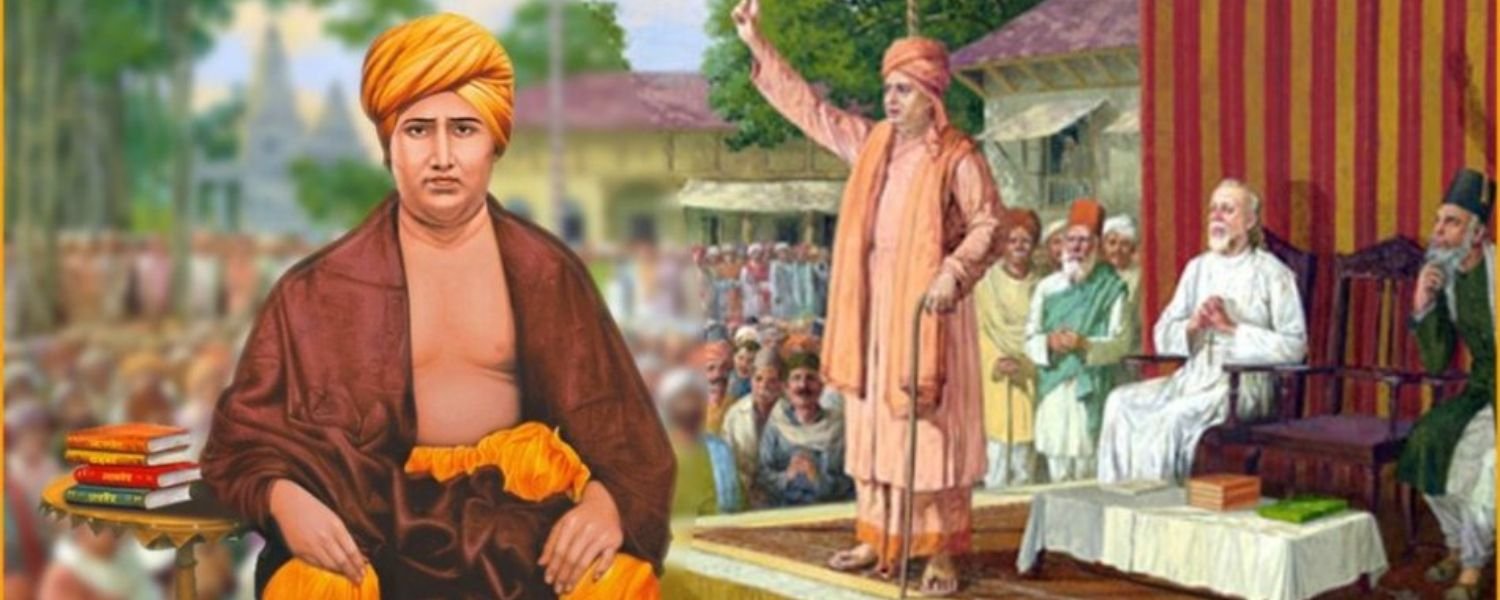
Maharishi Dayanand Saraswati, the esteemed spiritual leader and founder of the Arya Samaj movement, was born into a family deeply rooted in traditional Hindu culture in India.
His family background provided him with a strong foundation of values and principles that would shape his life and influence his teachings.
Maharishi Dayanand was born to Karshanji Lalji Tiwari and Yashodabai on Maharishi Dayanand Saraswati Jayanti in 1824 in Tankara, Gujarat.
His parents belonged to the Brahmin caste, traditionally holding positions of religious authority and scholarly pursuits within Hindu society.
From an early age, Maharishi Dayanand was immersed in the rich spiritual traditions of his family and community.
His parents imbued him with a profound respect for the Vedas, the ancient scriptures of Hinduism. They nurtured his intellectual curiosity and thirst for knowledge.
His parents’ upbringing laid the groundwork for Maharishi Dayanand’s later pursuits as a scholar and reformer.
He inherited a legacy of religious devotion, moral integrity, and intellectual rigor from his family, guiding him throughout his life.
While little is known about the specific details of Maharishi Dayanand’s family life, it is clear that the values instilled by his parents played a very effective role in shaping his character and shaping his teachings.
Their support and encouragement nurtured his early intellectual and spiritual development, setting him on a path that would ultimately lead to the founding of the Arya Samaj and the propagation of his vision of social and religious reform.
Maharishi Dayanand’s family background serves as a testament to the enduring influence of familial upbringing and cultural heritage in shaping the destinies of great leaders. His parents’ values instilled in him provided the moral and intellectual foundation upon which his visionary ideas and teachings were built, leaving an indelible mark on Indian society and the world.
Education of Maharishi Dayanand Saraswati

Maharishi Dayanand Saraswati’s pursuit of knowledge and spiritual enlightenment began in his early years.
It continued throughout his life, shaping his identity as a scholar, reformer, and visionary leader.
Despite facing adversity and challenges, his commitment to education remained unwavering, propelling him on a path of intellectual exploration and discovery.
Maharishi Dayanand received his early education in the traditional setting of a village school in Tankara, Gujarat.
Here, under the guidance of local teachers, he began his journey of learning and mastering the fundamentals of language, mathematics, and religious scriptures.
Even in his formative years, Maharishi Dayanand displayed a remarkable intellect and an insatiable thirst for knowledge.
As he grew older, Maharishi Dayanand’s quest for knowledge took him beyond the confines of his village school.
He embarked on a journey of self-study and exploration, delving into the vast expanse of Hindu scriptures and philosophical writings and engaging with scholars and intellectuals of his time.
Maharishi Dayanand’s education was not confined to the traditional classroom setting. Still, it was a lifelong pursuit characterized by intellectual curiosity and a relentless commitment to truth.
He found inspiration from a diverse array of sources, encompassing the Vedas, Upanishads, and other sacred scriptures, alongside the wisdom offered by both ancient and modern philosophers.
His deep engagement with India’s religious and philosophical traditions provided him with a comprehensive understanding of his country’s spiritual heritage.
It also laid the foundation for his later teachings and the establishment of the Arya Samaj, a socio-religious movement dedicated to promoting Vedic principles and social reform.
Maharishi Dayanand Saraswati’s education was not merely academic but a transformative journey of self-discovery and enlightenment.
His relentless pursuit of knowledge and truth propelled him to challenge conventional wisdom and advocate for a return to the pristine purity of Vedic teachings, inspiring countless individuals to embrace a path of righteousness and spiritual upliftment.
Founding of Arya Samaj

The founding of the Arya Samaj in 1875 marked a significant milestone in the life of Maharishi Dayanand Saraswati.
It heralded a new era of social and religious reform in India.
The Arya Samaj, meaning “Society of Nobles,” was founded to revitalize Hinduism and restore it to its original glory by promoting the values and teachings of the Vedas.
The seeds of the Arya Samaj were sown in Maharishi Dayanand’s early life as he grappled with his time’s social and religious challenges.
His deep study of the Vedas and other ancient texts led him to reject many of the prevailing practices and beliefs in Hindu society, including idol worship, caste discrimination, and superstition.
In 1875, Maharishi Dayanand formally established the Arya Samaj in Bombay (now Mumbai), publishing the “Satyarth Prakash,” or “The Light of Truth,” as its foundational text.
The Arya Samaj was founded on truth, righteousness, and the upliftment of all humanity, regardless of caste, creed, or gender.
One of the key objectives of the Arya Samaj was to promote Vedic education and to encourage the study and dissemination of Vedic knowledge.
The organization established schools, colleges, and libraries to facilitate the study of the Vedas and other ancient texts, making education accessible to people from all walks of life.
Another critical aspect of the Arya Samaj’s work was its emphasis on social reform.
The organization actively opposed practices like child marriage, untouchability, and the dowry system, championing the rights and dignity of every individual, regardless of their social standing.
The Arya Samaj also played a significant role in promoting women’s rights and education.
It encouraged women to take an active role in society and provided them with opportunities for education and empowerment, which was revolutionary at the time.
The Arya Samaj became a beacon of hope and inspiration for many in India through its emphasis on Vedic principles, social reform, and education.
It sparked a renewed interest in India’s ancient heritage and traditions.
It ignited successive generations, motivating them to embrace lives guided by the principles of truth, righteousness, and social justice.
Teachings and Philosophy of Maharishi Dayanand Saraswati
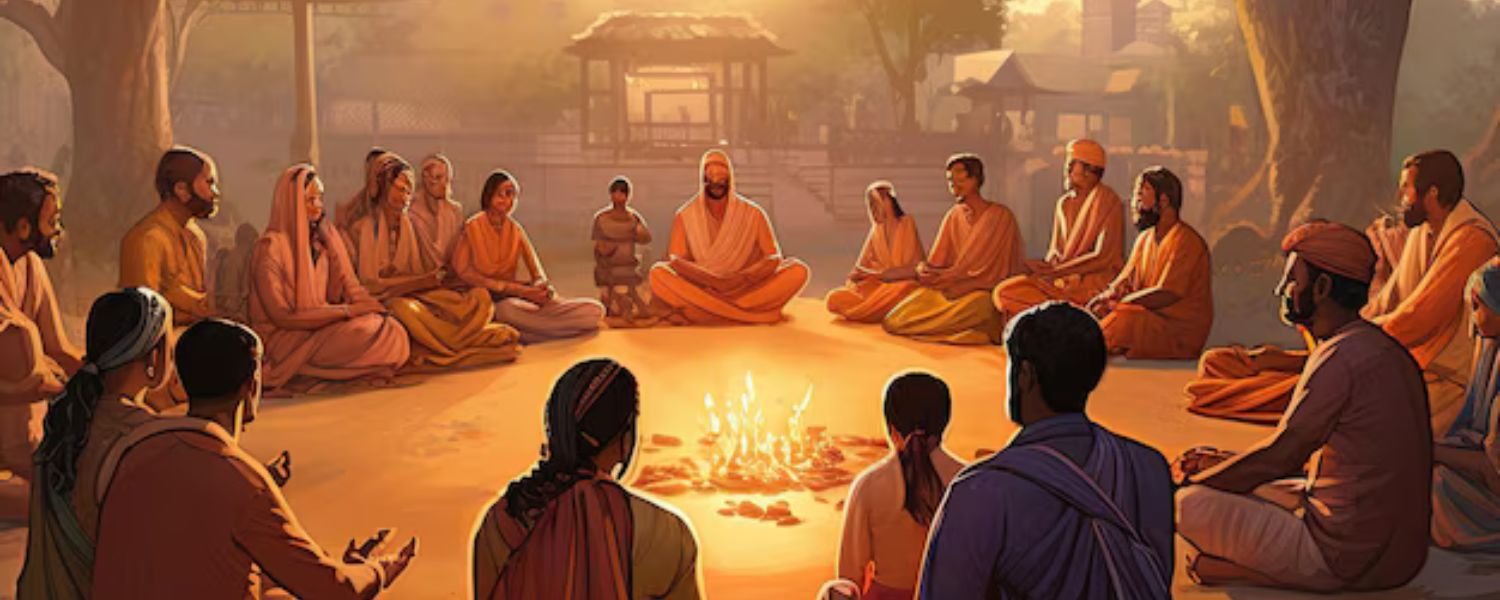
The teachings and philosophy of Maharishi Dayanand Saraswati are deeply rooted in the ancient Vedic scriptures and emphasize the pursuit of truth, righteousness, and societal reform.
His philosophy, encapsulated in the principles of the Arya Samaj, continues to inspire millions worldwide.
Here’s a breakdown of some of his essential teachings and their significance:
1. Reverence for the Vedas
Maharishi Dayanand Saraswati held the Vedas in the highest regard, considering them the ultimate source of knowledge and truth.
He advocated for a return to the pure teachings of the Vedas, free from the distortions and superstitions that had crept into Hindu society over time.
2. Monotheism and the Oneness of God
Central to Maharishi Dayanand Saraswati’s teachings is the concept of monotheism, the belief in one supreme, formless God (Brahman).
He opposed idol worship and polytheistic beliefs, emphasizing instead the unity of God and the universal brotherhood of humanity.
3. The doctrine of Karma and Reincarnation
Maharishi Dayanand Saraswati expounded on karma, which states that every action has consequences, and individuals are responsible for their own destiny.
He also believed in reincarnation, where the soul undergoes a cycle of birth and rebirth until it achieves spiritual liberation (moksha).
4. Social Reform and Equality
Maharishi Dayanand Saraswati was a staunch advocate for social reform and eradicating social evils like caste discrimination, untouchability, and gender inequality.
He championed women’s rights and promoted the education of all members of society, irrespective of caste or gender.
5. Rationalism and Scientific Inquiry
Unlike blind faith and superstition, Maharishi Dayanand Saraswati encouraged rationalism and scientific inquiry.
He believed knowledge should be acquired through observation, reasoning, and empirical evidence rather than unquestioningly accepting dogma.
6. Ahimsa (Non-violence) and Dharma (Righteousness)
Maharishi Dayanand Saraswati emphasized the importance of ahimsa (non-violence) and dharma (righteousness) in all aspects of life.
He believed that individuals should adhere to ethical principles and conduct themselves with integrity and compassion towards all living beings.
7. Service to Humanity
Service to humanity was a cornerstone of Maharishi Dayanand Saraswati’s philosophy.
He believed that true spirituality lies in selflessly serving others and alleviating the suffering of the less fortunate.
The Arya Samaj actively engages in various social welfare activities, including education, healthcare, and humanitarian aid.
Contributions to Indian Society
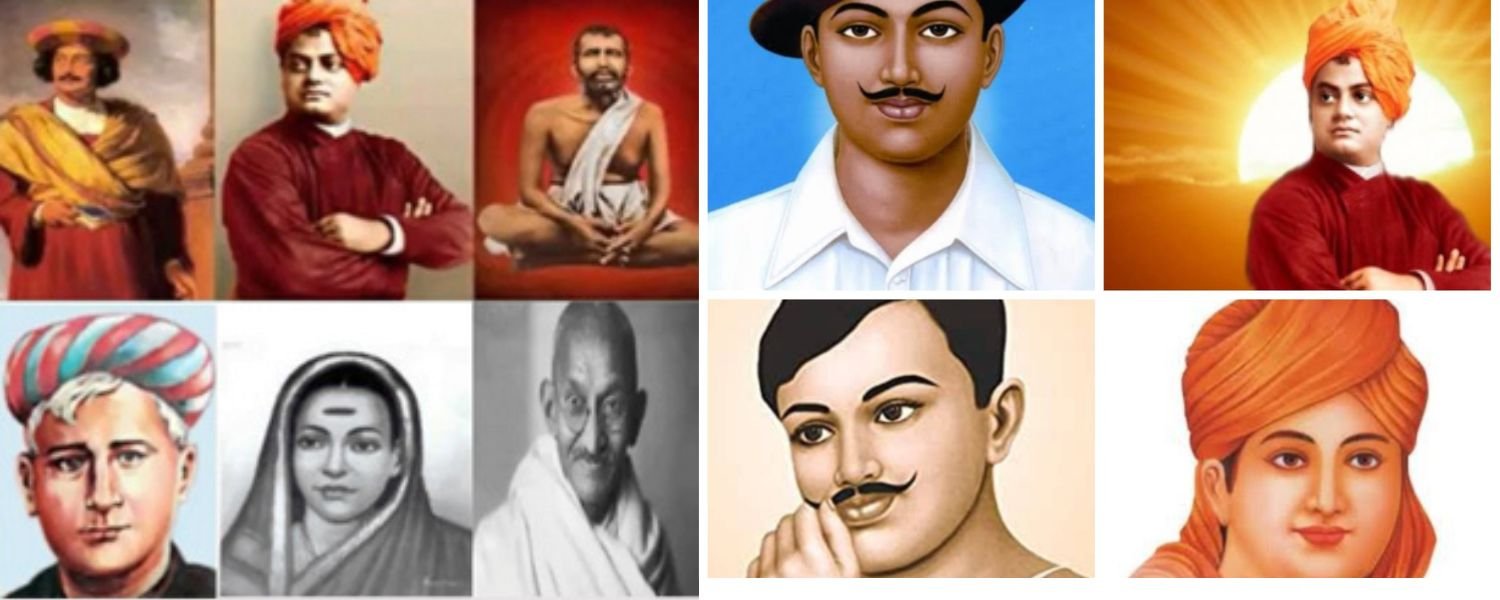
Maharishi Dayanand Saraswati’s contributions to Indian society were profound and multifaceted, spanning various domains, including education, social reform, and spiritual enlightenment.
Here are some of the key contributions he made:
1. Promotion of Education
Maharishi Dayanand Saraswati recognized the transformative power of education in uplifting individuals and society as a whole.
He advocated for universal education and established schools and educational institutions to impart knowledge to all segments of society, regardless of caste or gender.
His emphasis on education laid the groundwork for future educational reforms in India.
2. Women’s Empowerment
Maharishi Dayanand Saraswati was a staunch advocate for women’s rights and gender equality.
He championed girls’ education and encouraged participation in social and religious activities.
His teachings emphasized women’s dignity and equal status in society, challenging patriarchal norms and practices.
3. Social Reform
Maharishi Dayanand Saraswati Jayanti vehemently opposed social evils such as caste discrimination, child marriage, and untouchability.
He sought to eradicate these injustices through education, awareness, and advocacy.
The Arya Samaj, founded by him, catalyzed social reform, promoting principles of equality, social justice, and humanitarianism.
4. Revival of Vedic Culture
Maharishi Dayanand Saraswati played a pivotal role in reviving interest in India’s ancient Vedic heritage.
He emphasized the study and interpretation of the Vedas as a source of spiritual and philosophical wisdom.
His efforts contributed to a renewed appreciation for Vedic knowledge and culture, inspiring a resurgence of interest in Vedic rituals, scriptures, and values.
5. Advocacy for Rationalism and Scientific Inquiry
Maharishi Dayanand Saraswati advocated a rational and scientific approach to understanding the world.
He encouraged critical thinking, logical reasoning, and empirical investigation as essential tools for uncovering truth and dispelling superstition.
His teachings promoted a harmonious synthesis of spirituality and science, fostering a spirit of inquiry and intellectual curiosity among his followers.
6. Establishment of Arya Samaj
One of Maharishi Dayanand Saraswati’s most significant contributions was the founding of the Arya Samaj in 1875.
This socio-religious organization aimed to promote Vedic principles, social reform, and religious revivalism.
The Arya Samaj became a platform for individuals committed to truth, righteousness, and social service, fostering community and solidarity among its members.
Legacy of Maharishi Dayanand Saraswati
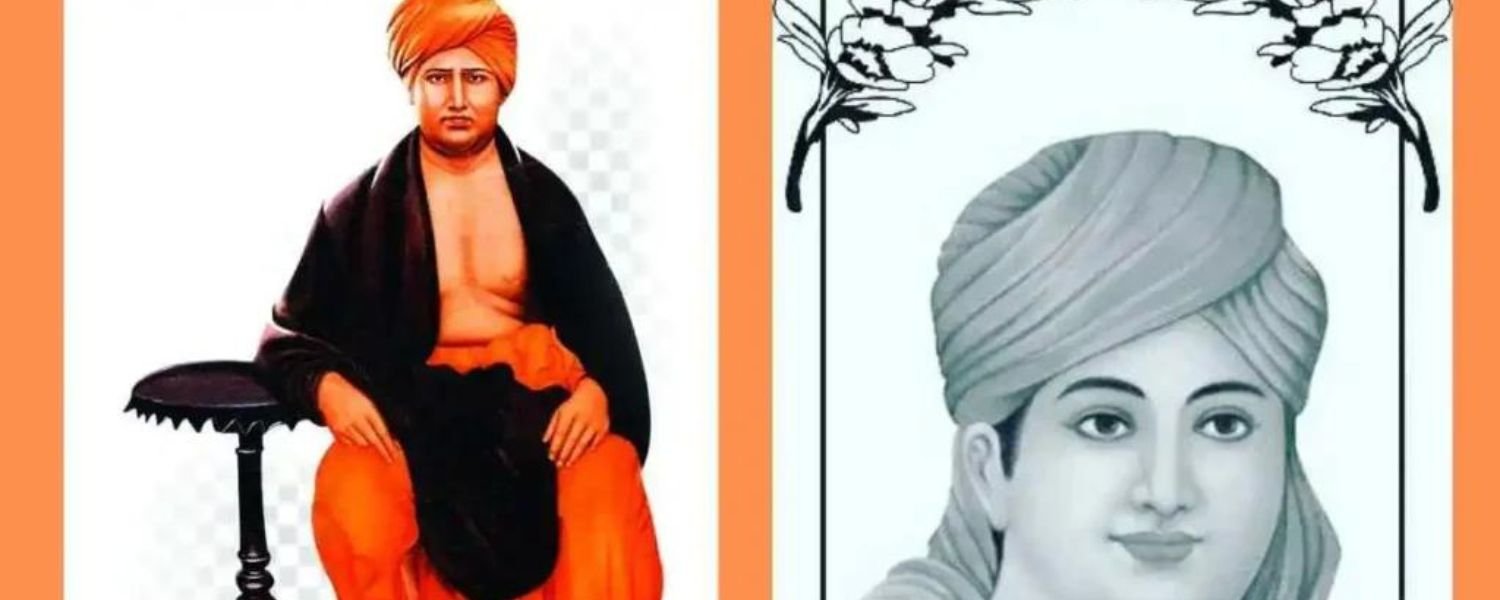
The legacy of Maharishi Dayanand Saraswati is a beacon of enlightenment and social reform that continues to inspire millions.
His teachings, centered on the revival of Vedic principles, social equality, and rationalism, have left an indelible mark on Indian society.
Through establishing the Arya Samaj, Maharishi Dayanand Saraswati laid the foundation for a socio-religious movement that emphasized the universal brotherhood of humanity and the pursuit of truth and righteousness.
His advocacy for women’s rights, education for all, and eradicating social evils such as caste discrimination and superstition, resonates strongly in contemporary India.
Maharishi Dayanand Saraswati’s legacy is not just a historical artifact but a living, breathing testament to the power of ideas to transform society for the better, inspiring generations to uphold the values of truth, justice, and compassion.
Spread of Arya Samaj Movement
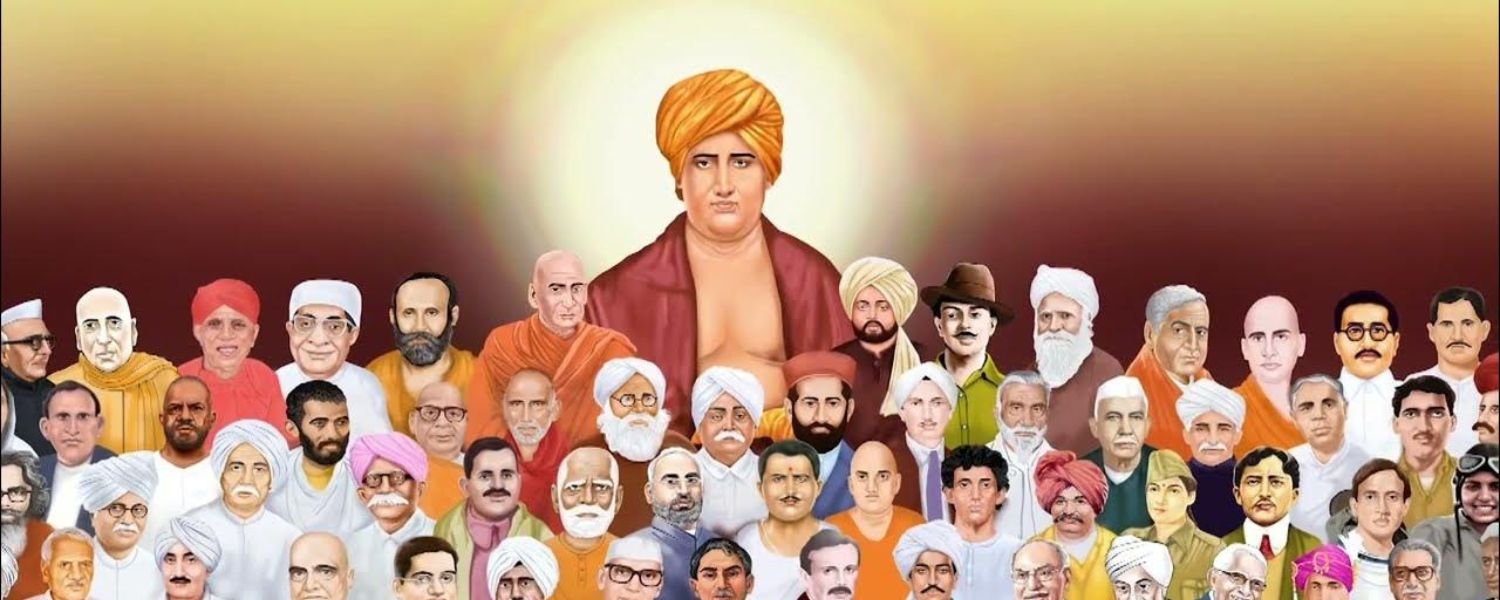
The Arya Samaj movement, founded by Maharishi Dayanand Saraswati, experienced remarkable growth and spread throughout India and beyond.
Its emphasis on Vedic principles, social reform, and religious revivalism resonated with people from diverse backgrounds.
Arya Samaj branches were established in various regions, including Punjab, Uttar Pradesh, Maharashtra, and Bengal, attracting a large following of individuals committed to its ideals.
The movement’s emphasis on education, gender equality, and social justice appealed to a broad cross-section of society, including marginalized communities and intellectuals.
Arya Samaj schools, colleges, and religious institutions proliferated, disseminating its teachings and promoting social upliftment.
The movement also expanded internationally, with Arya Samaj centers established in countries such as the United States, Canada, the United Kingdom, and Fiji.
Through its missionary activities and grassroots initiatives, the Arya Samaj movement continues to impact society positively, advocating for ethical conduct, humanitarian values, and spiritual enlightenment.
Views for other religions

Maharishi Dayanand Saraswati’s views on other religions were characterized by a spirit of inclusivity, tolerance, and respect.
While he was a devout Hindu and a staunch advocate for Vedic principles, he believed in the essential unity of all faiths and the common pursuit of truth and righteousness.
Celebrating Maharishi Dayanand Saraswati Jayanti, it’s important to recognize how Maharishi Dayanand Saraswati emphasized that the core teachings of all religions, including Hinduism, Islam, Christianity, and Sikhism, were rooted in the quest for spiritual enlightenment and moral conduct.
He encouraged dialogue and mutual understanding among religious communities, rejecting sectarianism and religious bigotry.
Maharishi Dayanand Saraswati believed that by recognizing the shared values and aspirations of different faith traditions, individuals could transcend religious divisions and work towards a harmonious and peaceful coexistence.
His inclusive approach towards other religions reflected his broader vision of promoting universal brotherhood and social harmony.
Conclusion
Maharishi Dayanand Saraswati’s lasting legacy stands as a testament to his profound impact on Indian society.
His unwavering dedication to truth, paired with his relentless efforts towards social reform and spiritual enlightenment, serves as an important source of inspiration for millions.
Through his advocacy for education, women’s empowerment, and the eradication of social injustices, Maharishi Dayanand Saraswati laid the foundation for a more just, equitable, and enlightened society.
The establishment of the Arya Samaj provided a platform for individuals to uphold the values of Vedic culture and contribute to the betterment of humanity.
As we commemorate Maharishi Dayanand Saraswati Jayanti, we honor not only his memory but also the timeless principles he espoused.
His teachings serve as a guiding light, inspiring us to emulate his virtues and work towards creating a world guided by truth, compassion, and social harmony.
For more people-related blogs, Subscribe to us Now!
FAQ
Q: What is the significance of Maharishi Dayanand Saraswati Jayanti?
A: Maharishi Dayanand Saraswati Jayanti commemorates the birth anniversary of the esteemed spiritual leader, Maharishi Dayanand Saraswati, and serves as an occasion to celebrate his life and teachings.
Q: What were some of Maharishi Dayanand Saraswati’s core teachings?
A: Maharishi Dayanand Saraswati emphasized the importance of Vedic knowledge, ethical conduct, and social reform.
He advocated for the eradication of social evils such as caste discrimination and superstition.
Q: How did Maharishi Dayanand Saraswati contribute to Indian society?
A: Maharishi Dayanand Saraswati made significant contributions to Indian society through his efforts to promote education, women’s rights, and social equality.
He also played a very important role in establishing the Arya Samaj movement, which continues to positively impact society.
Q: How did Maharishi Dayanand Saraswati’s views on other religions influence his teachings?
A: Despite being rooted in Hinduism, Maharishi Dayanand Saraswati espoused an inclusive attitude towards other religions.
He believed in the unity of all faiths and advocated for mutual respect and understanding among religious communities.
Q: What is the significance of the Arya Samaj movement?
A: The Arya Samaj movement, founded by Maharishi Dayanand Saraswati, was crucial in promoting Vedic principles, social reform, and ethical conduct.
It inspires individuals to lead virtuous lives and contribute positively to society.
Q: How did Maharishi Dayanand Saraswati’s teachings influence the spread of education in India?
A: Maharishi Dayanand Saraswati placed a strong emphasis on the importance of education as a means of empowerment and enlightenment.
His advocacy for universal education helped catalyze efforts to expand educational opportunities for all segments of society.
Q: What were some of the challenges Maharishi Dayanand Saraswati faced in his lifetime?
A: Maharishi Dayanand Saraswati faced opposition and criticism from various quarters due to his radical ideas and outspoken nature.
He encountered resistance from traditionalists and vested interests who were resistant to change.


